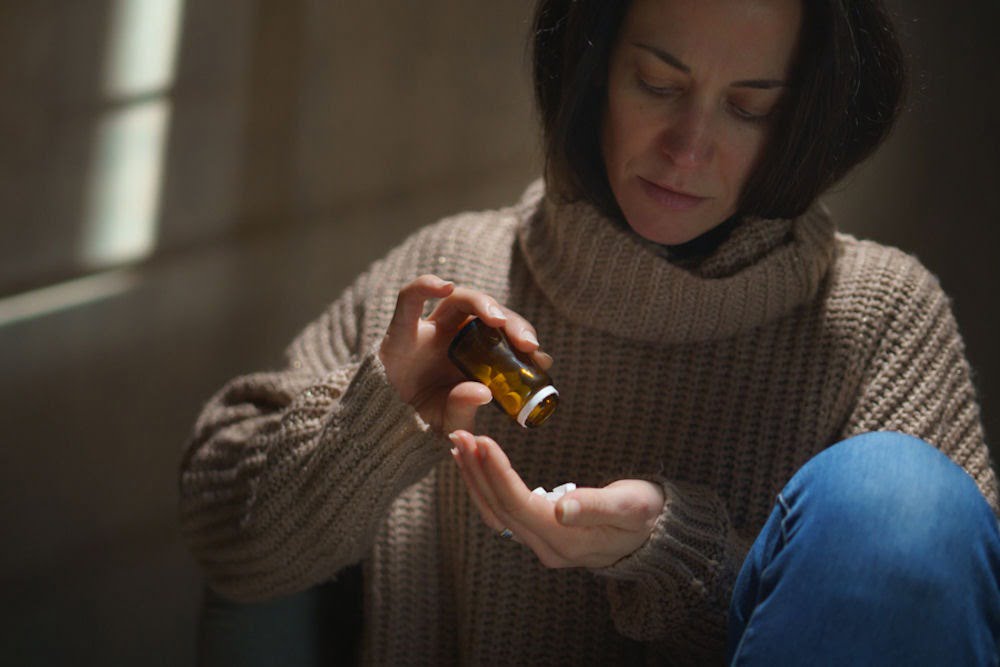Each year, dental surgery professionals remove an estimated 10 million wisdom teeth, also known as third molars. Unlike other teeth in the mouth, wisdom teeth are deep-rooted. Removal may cause a few days of intense pain. Because Vicodin and teeth extractions of this nature are very common, many patients find themselves faced with either taking prescribed Vicodin or dealing with the pain in other ways.
But you should know that Vicodin is a highly addictive drug that combines Hydrocodone (an opioid) with acetaminophen (the active ingredient in Tylenol). If you’re dealing with Vicodin dependency, know that Vicodin addiction rehab can help.
Vicodin and Teeth Extractions: When to Say “No”
According to the Associated Press, dentists have long been heavy prescribers of Vicodin despite the fact that ibuprofen (Advil) and acetaminophen can be just as effective at treating this level of pain. Many tooth extraction patients are teens and young adults, making this even more concerning.
But prescription rates have changed some as the new guidance from influential organizations like the American Dental Association has curbed opioid prescriptions. However, you may still find yourself faced with the decision about Vicodin and teeth extractions.
So, first, know that in most cases, over-the-counter pain relievers will be enough. A doctor may prescribe wisdom teeth Vicodin out of an abundance of caution. They don’t want their patients in pain. It’s okay to make a conscious decision to avoid Vicodin because of addiction concerns.
You should talk with your doctor about whether Vicodin is advisable if you:
- Drink heavily or frequently
- Have ever abused illegal or prescription drugs, especially opioids or sleeping pills
- Have a family member or housemate with one of the two above traits
How to Use Prescribed Vicodin Safely
If your doctor still says you need it, they will advise you about safe use. For example, you generally shouldn’t take it more than a few days. You shouldn’t take more than the prescribed amount. And you should not leave your pills anywhere a teen or someone with a history of drug use can find them.
Furthermore, count your pills each time you open the bottle. And never dispose of opioids in the trash, sink, or toilet. If a doctor prescribed your teen this medication, monitor administration. Even a very trustworthy adolescent can fall prey to the temptations of opiates.
How to Know If You’ve Developed a Vicodin Use Disorder
86% of people who use heroin (a street opiate) started with prescription opioids. The risks are real. And it often starts with the misuse of your prescribed pills.
You may have become dependent if you’re:
- Using more wisdom teeth Vicodin than prescribed
- Seeking out other opiate sources to supplement your prescription, including “borrowing” pills from a friend
- Experiencing pain unrelated to your dental surgery for which you use the painkillers
- Taking Vicodin “just in case”
Regarding that last one, Vicodin is fast-acting. There’s just no reason to do that.
How Crestview Recovery Helps Those Who Abuse Vicodin
The risks of Vicodin and teeth extractions are real. Some people can take it safely. But many people will develop a substance use disorder even with no history of addiction. If you or your child is struggling with Vicodin, it’s time to get the support you need to overcome this.
Crestview Recovery offers painkiller addiction treatment to those in the Pacific Northwest. Our Joint-Commission accredited organization uses evidence-based addiction treatment methods to help you get on the recovery path.
Types of Rehab
In addition to traditional 30, 60, or 90-day stays, we have an extended care program for those who need extra time and support to turn this around. You can receive treatment in settings that meet your personal needs, such as:
- Partial hospitalization (PHP)
- Intensive outpatient (IOP)
- Aftercare continued care program
Dual Diagnosis Treatment
The best thing you can do to end your active addiction is to get the integrated treatment you really need. A dual diagnosis program provides treatment for both your addiction and your mental illness at the same time. You learn coping skills for both disorders and therapies help you work through symptoms and causes of each condition. We treat many conditions at Crestview, including:
- Anxiety
- Depression
- Bipolar disorder
It’s important to find a treatment center that offers dual diagnosis treatment. The road to recovery is tough. You will need support, guidance, education, and counseling every step of the way through your addiction treatment and mental health journey.
Managing Substance Use Disorder Starts Today
 It started as a way to treat the pain. But it’s become something more. A need. An irresistible craving. If you’re tired of letting painkillers call the shots in your life, it’s time to get the support you need to live a healthier, happier life without them. Take back your control by calling us at 866.262.0531 to speak with a compassionate professional who can help you start the journey toward recovery.
It started as a way to treat the pain. But it’s become something more. A need. An irresistible craving. If you’re tired of letting painkillers call the shots in your life, it’s time to get the support you need to live a healthier, happier life without them. Take back your control by calling us at 866.262.0531 to speak with a compassionate professional who can help you start the journey toward recovery.
































